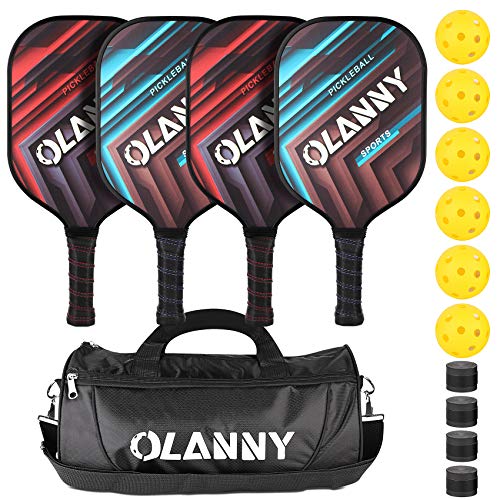
While pickleball might seem like a simple enough game, there are certain nuances to the rules that you can’t ignore. Just because pickleball combines the best parts of table tennis, regular tennis, and badminton does not mean you can take your individual rules around those games into the pickleball court. When you’re playing ping pong with your best friend, you might get away with hitting the ball two, three, or even twenty times to get it over the net.
In pickleball, the rules are a little more formalized and less forgiving. In professional pickleball and even on casual pickleball courts, playing fast and loose with the rules will get you disqualified. To avoid sitting out of the game before you’ve even gotten a chance to show your skills, you’ll want to read up on the rules and commit them to memory.
When in doubt, you can always consult the pickleball rulebook or ask an experienced player. In the article below, though, we’ll answer this question.
How many times can you hit pickleball to get it over the net?
 If you’re messing around with a pickleball, paddle, and a net all by yourself, you can hit a pickleball as many times as it takes to get it over the net. In formal settings or even in casual pickleball games, you generally can only hit a pickleball once to get it onto the other side of the net. Typically, if you hit a pickleball more than once to get it over the net, that play will count against you as a fault.
If you’re messing around with a pickleball, paddle, and a net all by yourself, you can hit a pickleball as many times as it takes to get it over the net. In formal settings or even in casual pickleball games, you generally can only hit a pickleball once to get it onto the other side of the net. Typically, if you hit a pickleball more than once to get it over the net, that play will count against you as a fault.
As with most rules, though, there are certain exceptions to this regulation. According to short-fact.com, “Balls can be hit twice, but this must occur during an unintentional, continuous, single-direction stroke. If the stroke is not continuous or not in a single direction, the hit is not allowed and a fault will be declared.”
This means that if you swing, miss the pickleball, and decide to swing for it again, you will not get the point even if it makes it over the net. On the other hand. If the pickleball happens to bounce twice on your paddle, though, you won’t have to worry about getting grief from the referee.
Also, if you hit the ball once as you swing forward and then hit the ball again as you pull your paddle back, you will be at fault even if the ball happens to make it over the net from an angle. Now, if you hit a pickleball twice on accident, you might wonder if the pickleball regulators will have mercy on you. The good news is that if the pickleball accidentally hits your paddle twice as you swing in one fluid motion, you won’t be penalized.
If you swing twice as a reflex without meaning to do it, though, there will be bad news for you.
As short-fact.com shares, in answering the question “What happens if you hit the ball twice?,” “As for double hits, if a player hits his ball twice in one stroke, accidentally or intentionally, he must count the original stroke and incur a one-stroke penalty, and then play it where it lies. In effect, it’s a one-shot penalty.”
When the ball bounces twice, you may be tempted to swing again out of habit to hit it. Even if you have the best of intentions and integrity in the game, you might unintentionally hit the ball as you wave your paddle around. Since the rules of pickleball are designed to be objective and fair, they won’t consider whether you meant to hit the ball a second time.
If you hit it a second time, you’ll be considered at fault whether you were attempting to skirt around the rules or not. Because of this rule, you will want to be mindful of where the ball is and where your paddle is after you hit it–especially if it didn’t make it over the net on the first swing.
What happens if the ball bounces twice in pickleball?
 If the ball bounces twice in pickleball, you might wonder how you’ll get it over the net or how you’ll get the ball back into play. Thankfully, the pickleball rulebook has considered this possibility and made rules for it. As recsports.msu.edu explains, “After the ball has bounced once in each team’s court, both teams may either volley the ball (hit the ball before it bounces) or play it off a bounce (ground stroke).
If the ball bounces twice in pickleball, you might wonder how you’ll get it over the net or how you’ll get the ball back into play. Thankfully, the pickleball rulebook has considered this possibility and made rules for it. As recsports.msu.edu explains, “After the ball has bounced once in each team’s court, both teams may either volley the ball (hit the ball before it bounces) or play it off a bounce (ground stroke).
The double bounce rule eliminates the serve and volley advantage and extends rallies.”


